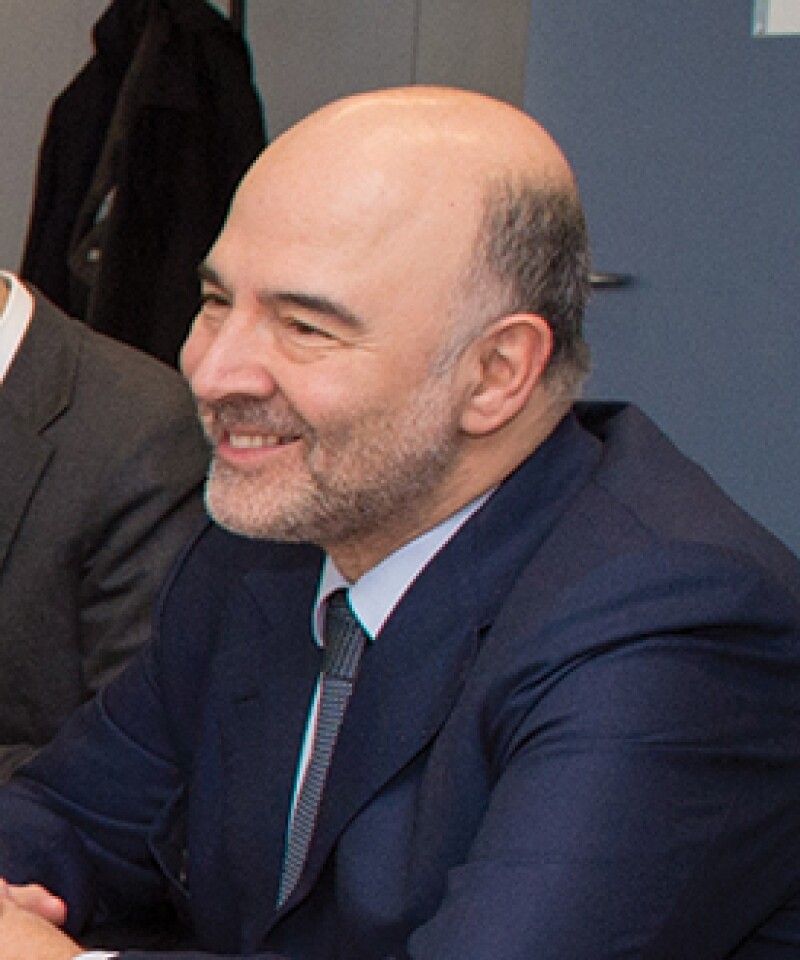
|
Pierre Moscovici was also in the Global Tax 50 2014 |
Pierre Moscovici returns to the Global Tax 50 after his maiden appearance in last year's list, and few could deny his continuing influence.
Now that he has been in the role for more than a year, the European tax commissioner speaks with Matthew Gilleard about 2015 achievements and the work that still lies ahead.
International Tax Review: You tweeted in January that 2016 will be the year that reforms bear fruit. Can you elaborate on this? What are your priorities for 2016 and what do you hope to have achieved by this time next year? Can we expect another (C)CCTB push in the near future?
Pierre Moscovici: We've achieved a lot in the tax portfolio during my first year in office, especially on issues of transparency and corporate taxation. I want to keep up this momentum and push forward on our tax agenda in 2016. My goal is to propose new actions both on direct taxation – to make sure that businesses pay taxes where they have their activity – and on indirect taxation with an ambitious plan to reform and modernise the EU's VAT system.
The CCCTB has been stuck for far too long in the Council – this project needs to be revitalised. I believe that with the current political and public focus on tax fraud and tax evasion, and even besides the benefits it would bring in terms of simplification for businesses, the CCCTB offers a potentially powerful tool to reduce tax avoidance and to make corporate taxation more transparent. This time, we will have a two-step approach meaning that we can secure a deal on elements for a common tax base. My own feeling is that member states could reach a rapid agreement on this part. Consolidation would then be looked at in the second stage.
ITR: Should we expect to see the harmonised FTT during 2016?
PM: It is in the interest of the member states who decided to go for enhanced cooperation on this tax that a decision on its technical implementation should be taken swiftly. The Commission remains strongly in favour. The discussions began in 2011 – it's time now to wrap things up. My services are currently helping the participating member states to advance on the technical work that should lead to a final political agreement.
ITR: When we spoke around this time last year, you earmarked various areas in which you expected to make progress during 2015. These included initiatives such as CCCTB and FTT, but also items like automatic exchange of tax rulings, reform of the Parent-Subsidiary Directive (to close loopholes) and so on. Now that some of these items have been completed, which area of progress in particular are you most proud of?
PM: I am proud of all of our achievements over the last 14 months. For example, the adoption of the automatic exchange of information on tax rulings in only nine months was an extraordinary achievement. But what fills me most with pride is that this Commission is fully engaged for a more transparent and a fairer tax system in Europe. I'm not only talking about my team and my services but also about the fantastic work carried out by my colleague [and fellow Global Tax 50 entrant] Margrethe Vestager and her services. She has done sterling work to address tax evasion through the state aid rules.
ITR: Are there any new corporate tax initiatives that you are working on or planning to work on? For example, in light of themes coming out of the final OECD BEPS project deliverables?
PM: Indeed. At the end of January, we proposed an ambitious package to tackle the issue of tax avoidance. As the work on a new proposal for a CCCTB will take more time, we can already move forward to implement the 15 actions defined by the OECD in the BEPS Project and endorsed by the G20 last year. We can even go further, where possible, to close gaps in existing international tax rules.
The Global Tax 50 2015 |
|
|---|---|
The top 10 • Ranked in order of influence |
|
3. Wang Jun |
|
7. Ian Read |
|
The remaining 40 • In alphabetic order |
|









